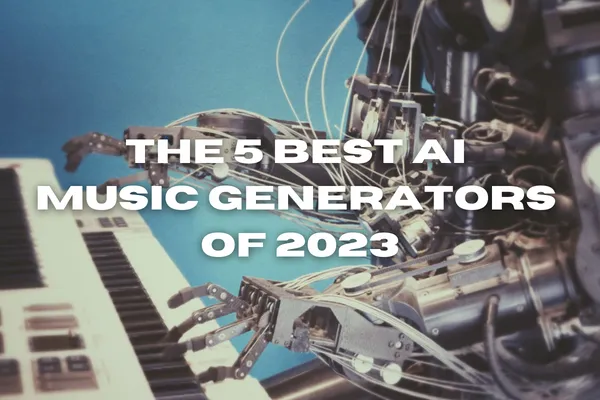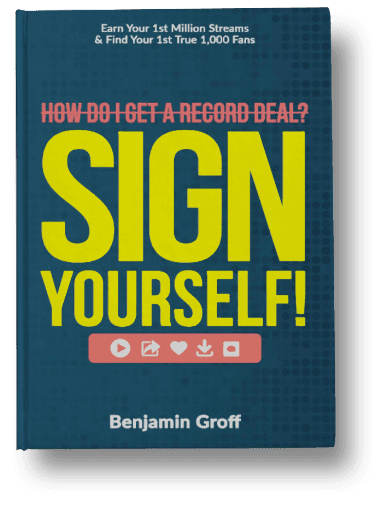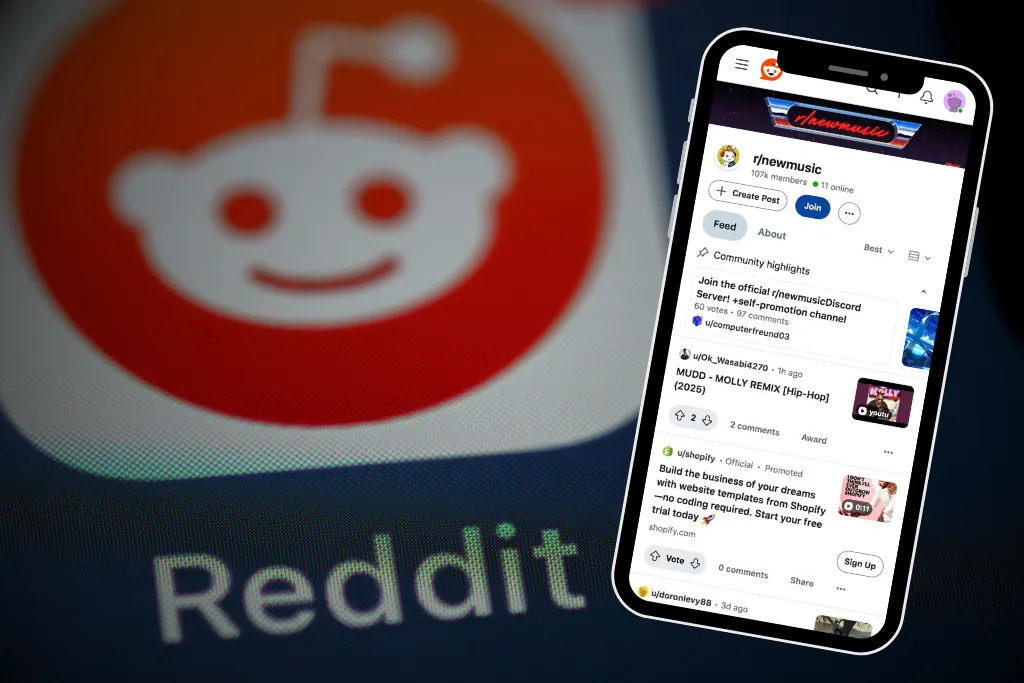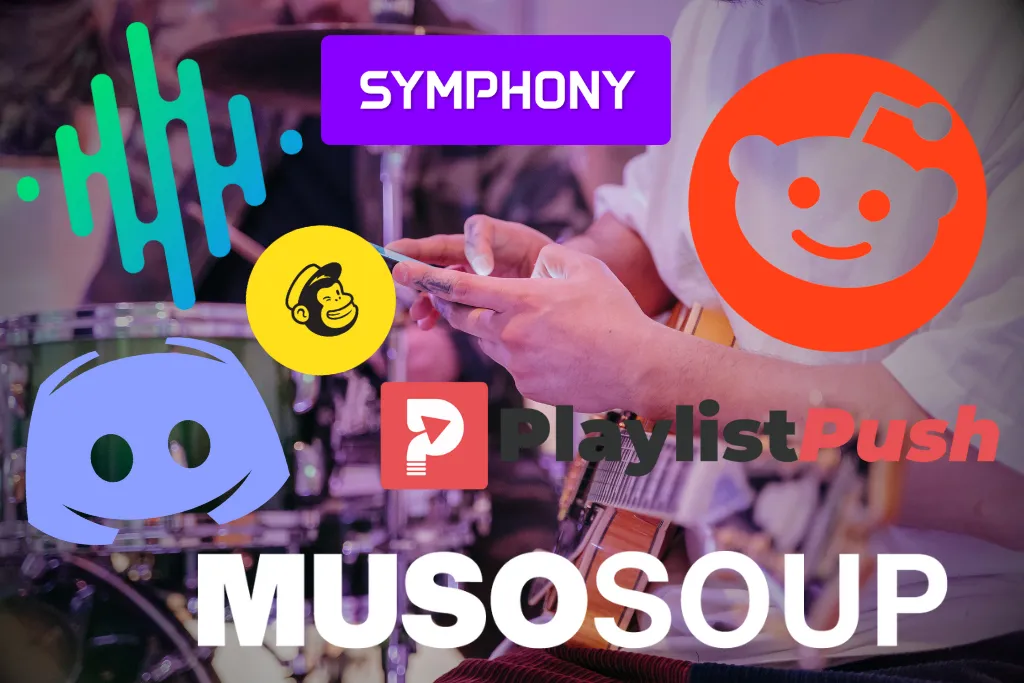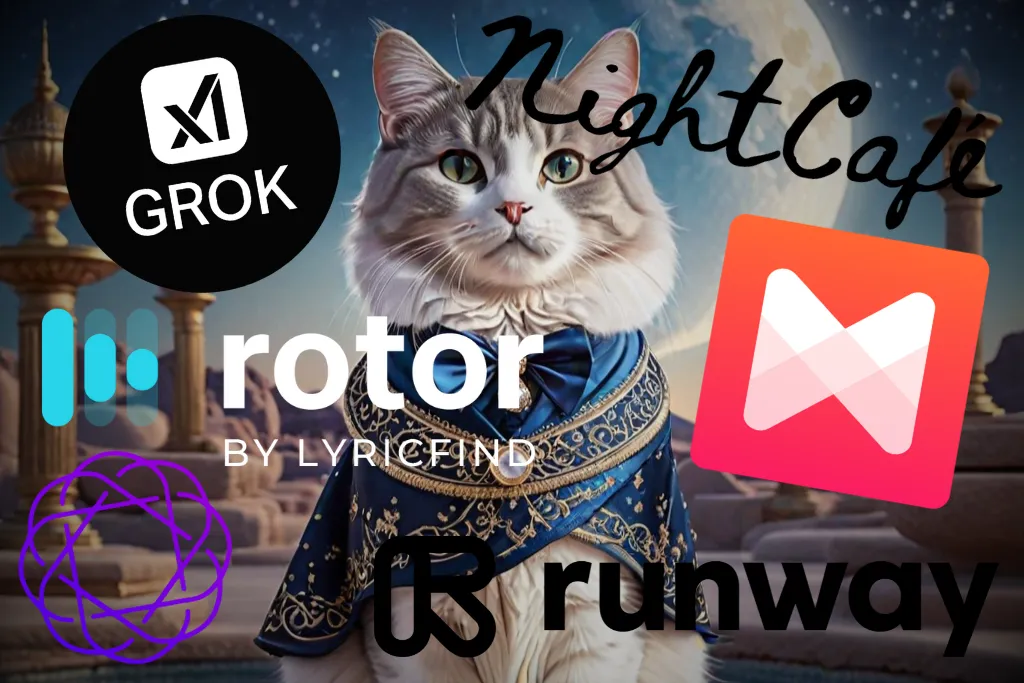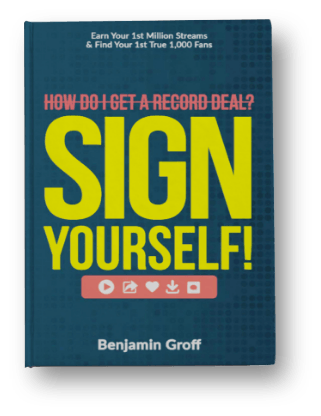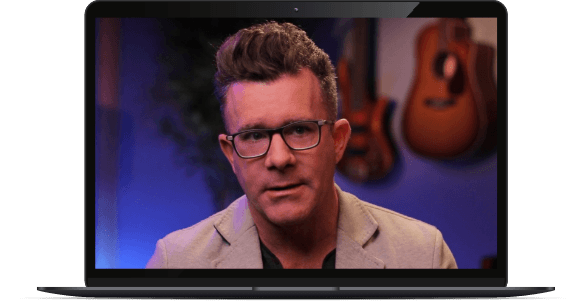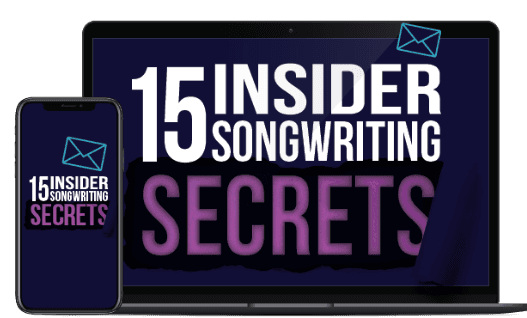Written by J. Simpson and Benjamin Groff
AI has been growing at an unbelievable rate these past several years. It’s gone from crude customer service chatbots to writing essays sophisticated enough for college freshmen in just 2 or 3 years. It boggles the mind to think where we’ll be three years from now.
Stay up to date on must read, new articles, courses and special offers.
As musicians, producers, and creatives of every kind, it’s our job to know what tools are out there and available. While some sensationalists are crying “The Death Of Art,” or 100 other thinkpiece hot takes, it seems alarmist to worry that AI will replace Human art anytime soon – or ever. They’re tools, like the way the camera is a tool, here to expand our practice, deepen our skills and understanding of music, broaden our horizons and get us out of creative blind alleys and dead-ends.
AI music generators, in particular, can be especially useful. AI music generators create original songs and compositions from nothing, with a simple prompt or a click of a button. AI music generators can be intensely useful for songwriters, simply to give you some ideas or a template to work off of. They can also help you to overcome writer’s block or when you’re feeling devoid of inspiration. Sometimes, even a simple bassline or drum pattern is enough to get you going.
With that in mind, here are a few of the best AI music generators currently available in 2023.
Amper Music
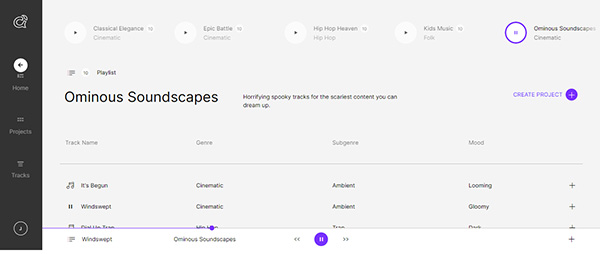
Music is a language. Like any language, it can take years to become fluent. It can take a lifetime to master.
Not everybody wants to put the time in to become a master musician. Or maybe you do but you’re looking for a mentor.
Amper Music is largely meant for content creators working in other mediums. It lets podcasters, video creators, and game developers create custom scores and soundtracks using natural language. It begins with pre-recorded samples which are then converted into real audio which can then be modified by musical key, instrument, or tempo. Amper Music is like having a customizable sync audio team at your beck and call.
Amper Music is going to mostly appeal to content creators looking for quick, serviceable soundtracks and scores. Most of what it comes up with sounds like stuff you’ve heard before but it’ll get the job done.
Amper Music could be useful as an idea generator or a template to learn from, though. One is not simply born with the ability to translate the feeling of “trying times.” Even years of woodshedding doesn’t necessarily translate into putting emotions on the staff.
Amper Music could be a useful tool for sparking inspiration, which is where these music AIs in 2023 truly shine.
AIVA
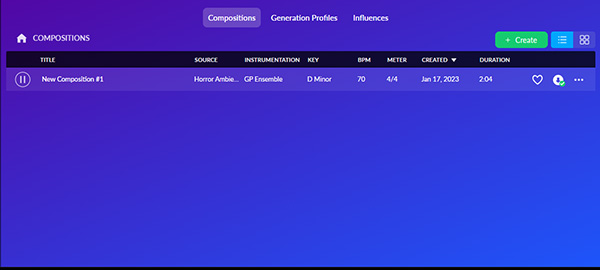
AIVA is another popular music AI for composing custom music for different media. It’s already surpassed the STEAM/podcast market to publish a classical piano sonata and even release an album.
Most useful of all, AIVA can create permutations and variations of popular songs, giving your creations a familiar quality without having to pay large licensing or royalty fees.
AIVA offers an impressive range of genre presets, ranging from the common (“old-school rap”) to the ridiculously obscure (“fantasywave”). These presets offer an example of the potential usefulness of AIVA – learning a new style or genre. You might be new to “organic house,” for instance, and a quick custom-built sketch could be enough to get you started.
The wide range of electronic music styles, alone, are reason enough to give AIVA a spin, especially given the impressive functionality of the free tier. The incredible, headswirling diversity of electronic music styles is enough to make even the most diehard raver dizzy. Having a side-by-side example of jungle and drum ‘n bass to compare and contrast, alone, makes AIVA worthy of examination.

Learn the art and secret science behind hit songwriting whether you’re an artist or aspiring pro songwriter for others.
Discover 16 never before shared hit making secrets (that you won’t find anywhere else) to elevate your songwriting.
Boomy
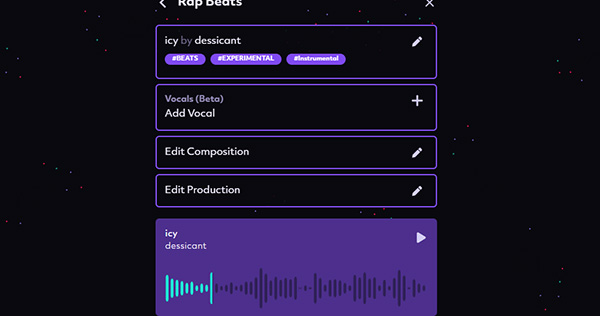
It’s beyond inspiring to get your music out into the world – especially when it’s making you money.
Boomy is unique in that it lets you quickly create unique, custom music in literal seconds. These creations can then be uploaded and shared with various streaming services, where you can begin earning royalties and licensing fees.
Boomy lets you customize and fine-tune your results, as well, by creating a custom profile. Every creation needs to be approved or rejected, which helps the algorithm identify your tastes.
This feature is one of the benefits of using Boomy, in particular, as it can help you isolate and define your taste, style, and aesthetic. This can help you fine-tune your creative process as it gives you an idea of what to work on and where to spend your energy and efforts.
MuseNet
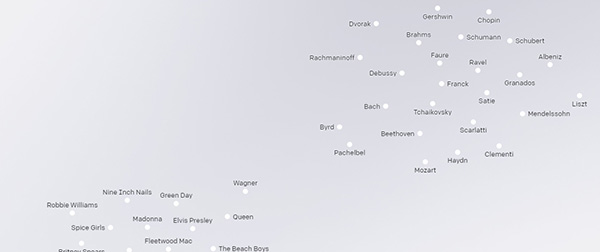
OpenAI are one of the biggest names in AI and machine learning right now, mostly due to their creation of ChatGPT. It’s little surprise that MuseNet, their AI music generator, would be one of the most innovative on the market.
MuseNet is one of the most sophisticated music AIs currently in existence, as it’s based off of machine learning and probability. MuseNet uses probability modeling to predict the likelihood of the next note in a MIDI file. This approach also lets MuseNet recreate the style and sound of specific composers and musicians.
Even more impressively, MuseNet can create automated music for up to 10 voices in 15 different styles. It’s well beyond the essentially stock music of most of the AI music generators
There are a ton of examples of MuseNet music out there to check out, but keep in mind that public access is still sporadic.It still sometimes struggles with unconventional pairings, as well, like Chopin with bass and drums for example.
Even so, MuseNet is by far the most impressive AI music generators out there at the moment.
Amadeus Code
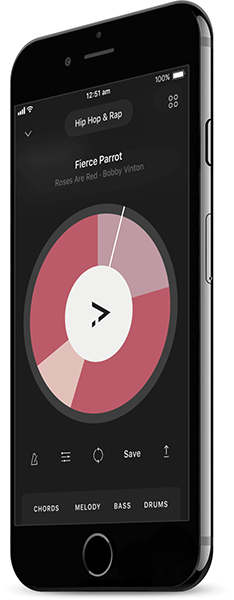
We’ll round out our list of AI music generators with an iOS app in case you want to compose music on the fly. Amadeus Code is billed as an “AI-powered songwriting assistant.” Like MuseNet, Amadeus Code is powered by a deep repository of musical metadata, containing a database of chord progressions from the world’s most popular music.
Like AIVA, Amadeus Code lets you emulate or even recreate popular songs. You can even tweak or entirely recreate whole sections, making the compositions even more customizable and, as a result, more useful.
Best of all, Amadeus Code even lets you export your creations as MIDI files as well as audio. This makes Amadeus Code one of the most useful AI music generation tools on our list, as well as the most practical. You can important the AI-generated compositions into your DAW or production environment of choice, where you can further tweak your creations to your heart’s content.
Final Thoughts On AI Music Generators
There’s no turning your back on progress. Whatever your feelings on music AIs might be, they’re not going away anytime soon. Judging from how fast developments have been coming, it seems safe to say we’re only going to keep seeing more music AIs in 2023 and beyond. What you decide to do with them is up to you.
Every technological development in music has had its shares of ups and down, strengths and weaknesses. Portable synthesizers put whole orchestras out of business. It also gave individuals access to an orchestra’s worth of sounds in their bedroom, with no formal training required.
As musicians and creatives living in a technological world. What we do about that fact is up to us. Music generator AIs can be great and useful tools in a lot of different ways. You can use them to generate new and interesting chord changes or melodies you wouldn’t have thought of otherwise. You might use machine learning to deconstruct your musical idols. You could use a music generator AI to learn how to work in a new genre.
The possibilities are literally limitless. Try out one or two of these inspiring music AIs and see for yourself how these new tools might fit into your creative process.
